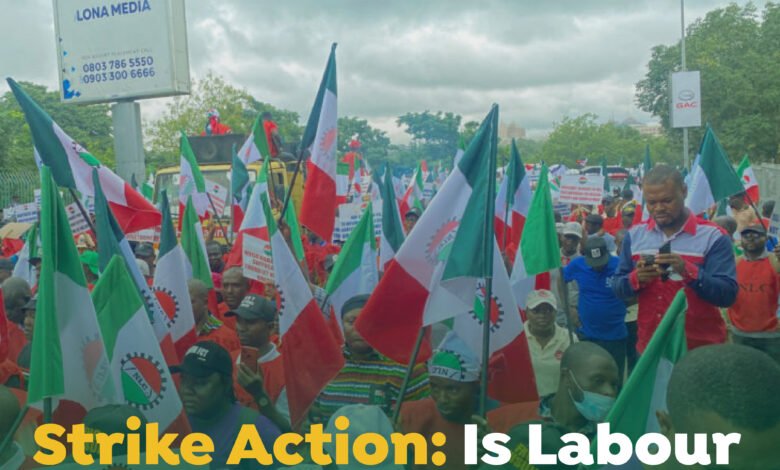
Labour Unions play a vital role in advocating for Nigerian workers’ rights, ensuring fair wages, safe working conditions, and overall well-being.
However, during tense negotiations, a crucial question arises: are the tactics employed always beneficial in the long run, or could they inflict unintended harm like loss of jobs and other economic woes?
Dilemma
Strikes, a double-edged sword, can secure better wages and working conditions.
Yet, the question remains: should short-term gains come at the potential cost of long-term damage to the economy and worker well-being?
This dilemma confronts Nigerian workers as they embark on another nationwide strike that is threatening to cripple the nation’s economy and set the country back, potentially ruining all the hard work of the past months.
Crazy shutdown
On June 3rd, Nigerians woke up to a nationwide shutdown of the national grid, offices, airports, and other key sectors due to a strike called by the Nigeria Labour Congress (NLC) and the Trade Union Congress (TUC).
Negotiations over a new minimum wage with the federal government had reached a stalemate.
The roots of the current crisis lie in policy changes implemented in 2023.
President Bola Tinubu’s administration removed the petrol subsidy, leading to a surge in living costs. The Nigerian National Petroleum Company Limited (NNPCL) then announced a significant increase in petrol prices.
Labour unions vehemently opposed these changes. The NLC initially threatened a nationwide strike in August 2023, but called it off after negotiations with the government. A series of similar standoffs ensued, with the unions resorting to strikes and the government seeking court orders to prevent them.
A fragile truce was reached in September 2023. A Memorandum of Understanding (MoU) was signed, promising a N35,000 wage increase for federal government workers, the formation of a minimum wage committee, and a temporary suspension of VAT on diesel.
While the Federal Government has done well in fulfilling its part except for a new minimum wage, the unions allege lack of progress prompting the current indefinite strike action.
Unrealistic demand
The unions’ demands include a new minimum wage of N494,000 (unrealistically higher than the government’s offer of N60,000) and a resolution to rising electricity tariffs. Negotiations last week failed to yield a compromise, prompting the strike.
While many Nigerians support better worker welfare, the chosen approach raises concerns. Mohammed Jamal, writing on his social media platform, questioned the disruption of essential services like hospitals during the strike.
“I still don’t understand how you can shut down the National Grid intentionally and keep hospitals without power and get away with it? He quieried.
According to experts, the effectiveness of strikes as a negotiation tactic is a complex issue.
“Strikes remain a critical tool for labour unions, but their effectiveness hinges on strategic use. By exploring alternative tactics, strengthening negotiation skills, and considering long-term consequences, unions can advocate for workers’ rights while minimizing disruption to the economy” Adeyemi Oladimeji, a public affairs analyst said on Monday.





